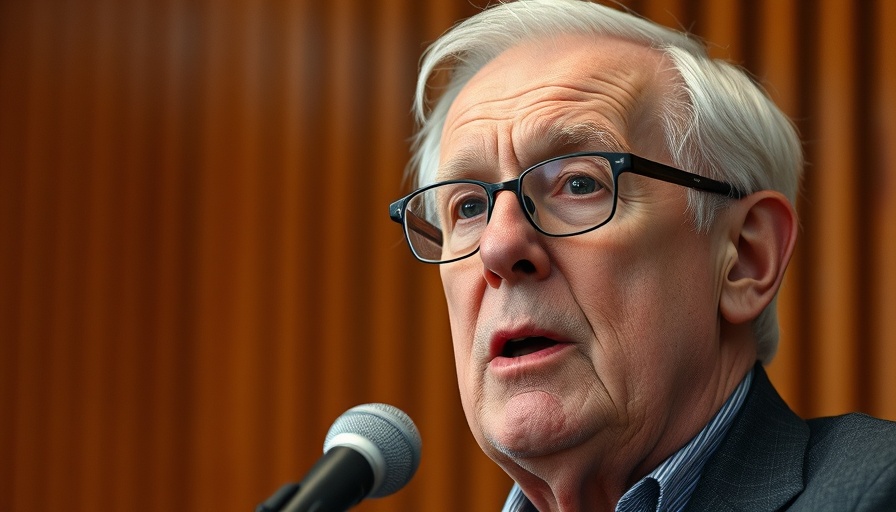
Francis Collins: A Legacy in Biomedical Research
Dr. Francis Collins, known for his unparalleled contributions to biotechnology and health, has resigned from his role at the National Institutes of Health (NIH), leaving a significant impact on the field of biomedical research. Collins, who led the NIH from 2009 to 2021, announced his retirement shortly before the agency faced severe budget constraints and workforce reductions under the administration of President Trump. His departure comes during a tumultuous time for the NIH, emphasizing the difficulties faced by one of the world's premier health institutions.
Collins' Distinguished Career
Joining the NIH in 1993, Collins directed the Human Genome Project, revolutionizing genetic research by mapping the entire human genome—a feat that was completed two years ahead of schedule. His efforts garnered bipartisan support for the NIH, with substantial increases in funding during his tenure. Notably, NIH's budget jumped from $30 billion in 2009 to over $41 billion by 2021, reflecting the critical role that federal funding plays in advancing medical research.
Throughout his career, Collins has been widely recognized not just for his scientific acumen, but also for his ability to bridge gaps between science and broader societal issues. Describing the NIH as the 'crown jewel of the federal government,' Collins noted his admiration for the institution's legacy and its dedicated workforce. He urged continued support and understanding for NIH employees amid ongoing challenges.
The Politics of Science
The era of Collins' leadership has not been without controversy, particularly during the COVID-19 pandemic. Collins, alongside Dr. Anthony Fauci, faced scrutiny for their management of public health responses, including vaccination efforts and public health guidelines. While some criticized their decisions, others praised their commitment to utilizing scientific knowledge in quickly developing unprecedented vaccines.
Collins' exit raises concerns not just about leadership stability at the NIH, but about the future direction of the agency. With pressures from budget cuts and a shift in policy priorities, the agency's ability to sustain its research capacities is uncertain. Previous initiatives aimed at addressing critical health crises, such as cancer and substance abuse, could be jeopardized without strong leadership and support.
Collins' Vision for the Future
As Collins steps away, he leaves behind a burgeoning wave of genomic medicine that has exponentially opened doors for innovative treatments targeted at individual genetic profiles. He championed initiatives like the All of Us Research Program, designed to gather health data from a million participants across the U.S. to enhance precision medicine.
Looking ahead, Collins expressed intent to remain involved in the scientific community while continuing his research in diabetes and genetic aging disorders. His vision for the integration of science and faith, alongside his call for respect and support for healthcare workers, highlights the human side of biomedical endeavors.
The Importance of Institutional Knowledge
For CEOs and business leaders, Collins' retirement serves as a pivotal reminder of the significance of continuity and expertise within vital institutions like the NIH. The challenges currently faced can affect not only public health policy but also the broader landscape of research funding and innovation. As advancements in health technology become increasingly vital, the need for well-supported institutions cannot be overstated.
Many in the health and biotechnology sectors will be watching closely to see who succeeds Collins and how the new leadership will navigate existing challenges, including funding and public perception. The future of healthcare innovation hinges on strong, stable leadership and continued investment in research—a lesson underscored by the career of Dr. Francis Collins.
 Add Row
Add Row  Add
Add 




 Add Row
Add Row  Add
Add 

Write A Comment